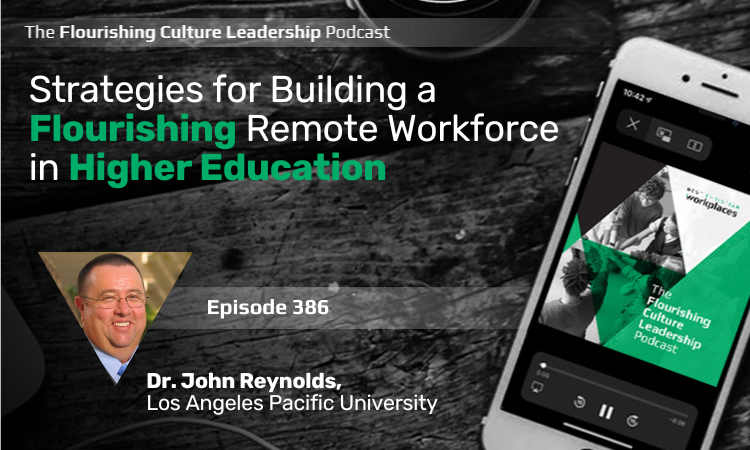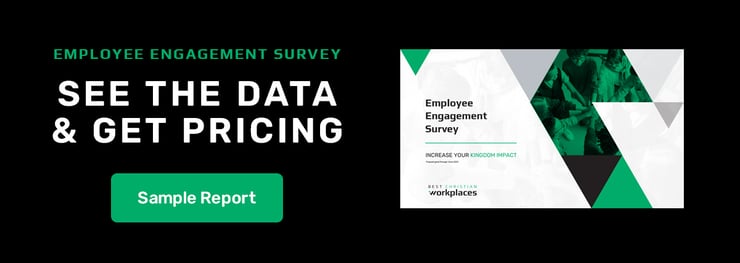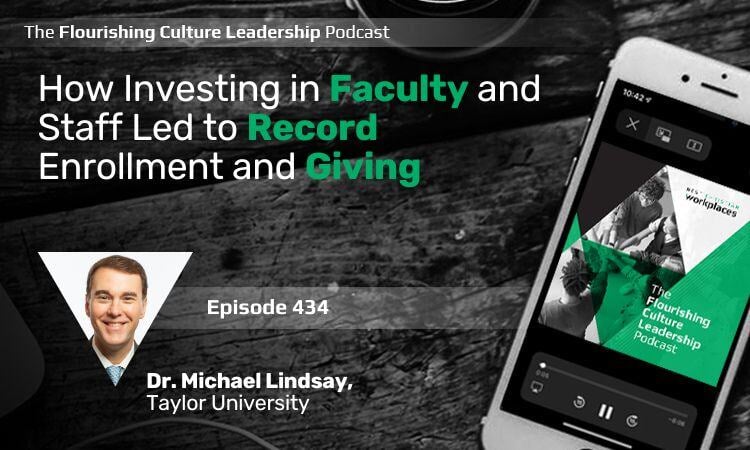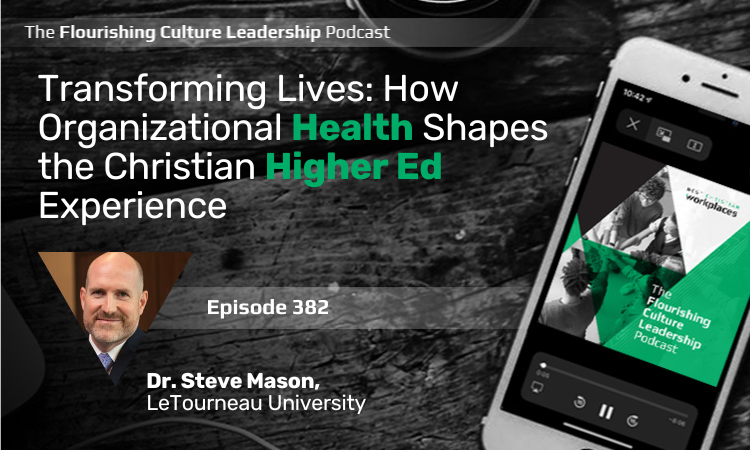2 min read
386: Strategies for Building a Flourishing Remote Workforce in Higher Education
 Best Christian Workplaces
:
April, 22 2024
Best Christian Workplaces
:
April, 22 2024

Join Dr. John Reynolds, President of Los Angeles Pacific University, as we explore how this university cultivated a flourishing workplace culture through innovative strategies like leveraging employee engagement surveys, nurturing trust in remote settings, and prioritizing personal development for leaders.
Listen to the Audio
Listen in Apple Podcasts | Listen in Spotify | Listen in Google Podcasts
In this episode:
- Introduction of Los Angeles Pacific University (LAPU):
- Dr. John Reynolds explains the origins of LAPU as a response to the 2008 financial crisis, aiming to make Christian higher education affordable and accessible to working adults through flexible online programs. (04:46)
- Focus on Workplace Culture:
- LAPU emphasizes workplace culture since its inception, with a commitment to understanding and improving employee engagement through regular surveys and interventions. (08:23)
- Importance of Employee Engagement Surveys:
- Dr. Reynolds stresses the significance of annual engagement surveys in gauging the health of the organization and guiding strategic initiatives. (09:20)
- LAPU uses survey results to address issues like managerial inclusion and align interventions with strategic goals. (09:35)
- The FLOURISH model provides a framework and vision for a healthy workforce and culture that's aligned with LAPU's core values. (09:55)
- LAPU has a team that owns and is committed to a healthy workforce. (11:34)
- Sustaining Engagement in Remote and Hybrid Work Environments:
- LAPU adapted its leadership style during the pandemic, prioritizing trust, empowerment, and clarity of outcomes to support remote and hybrid work arrangements. (12:22)
- Past results of the survey showed that the managers felt excluded from the leadership team. A masterclass was developed only for managers to focus on areas like conflict resolution. (13:48)
- The university employs various strategies, including weekly community meetings, virtual competitions, and technology platforms, to foster engagement and connectivity among its dispersed workforce. (16:48)
- Leadership and Community Building:
- Importance of focusing on community within organizations. (20:39)
- Need for leaders to adapt their styles to engage with communities effectively. (21:16)
- Building community fosters competitive events and enhances organizational culture. (22:35)
- Leadership 360 Assessments and Development:
- Utilizing leadership 360 assessments for self-improvement and growth. (27:52)
- Benefits of receiving feedback and acting on it for leaders and their teams. (29:37)
- Creating shared language and setting improvement goals based on assessment results. (29:46)
- Supporting a Diverse Student Body:
- Addressing the challenges of serving a diverse student body. (30:56)
- Offering training and support for staff to engage with students from various cultural backgrounds. (31:04)
- Implementing programs like student-success groups and shared-equity leadership models to ensure inclusivity and support for all students. (32:36)
- Shared-Equity Leadership Model:
- Moving beyond DEI as a departmental responsibility to a shared mindset and culture. (33:58)
- Every individual in the organization responsible for creating an inclusive environment. (34:17)
- Fostering a workplace culture aligned with core values of inclusivity, belonging, and equity. (34:58)
- Continuous Learning and Growth as a Leader:
- Emphasizing the importance of continuous learning and personal growth for leaders. (37:13)
- Remaining curious, agile, and open to new perspectives and ideas. (37:38)
- Seeking mentorship and coaching to support leadership development. (38:13)
- Living out core values of fairness, justice, and equipping others to reach their potential. (38:46)
Read the Transcript
Read a complete, word-for-word transcript of the episode
FOLLOW OUR HOST
Follow our Host, Al Lopus, on LinkedIn & Twitter.
Email our host at al@workplaces.org
%20%20Dr.%20Dondi%20Costins%20Journey.png)
389: Leadership Lessons from the Military to Liberty University (LU): Dr. Dondi Costin's Journey
Join Al Lopus in conversation with Dr. Dondi Costin, the new president of Liberty University, as they discuss the vital aspects of assessing...



